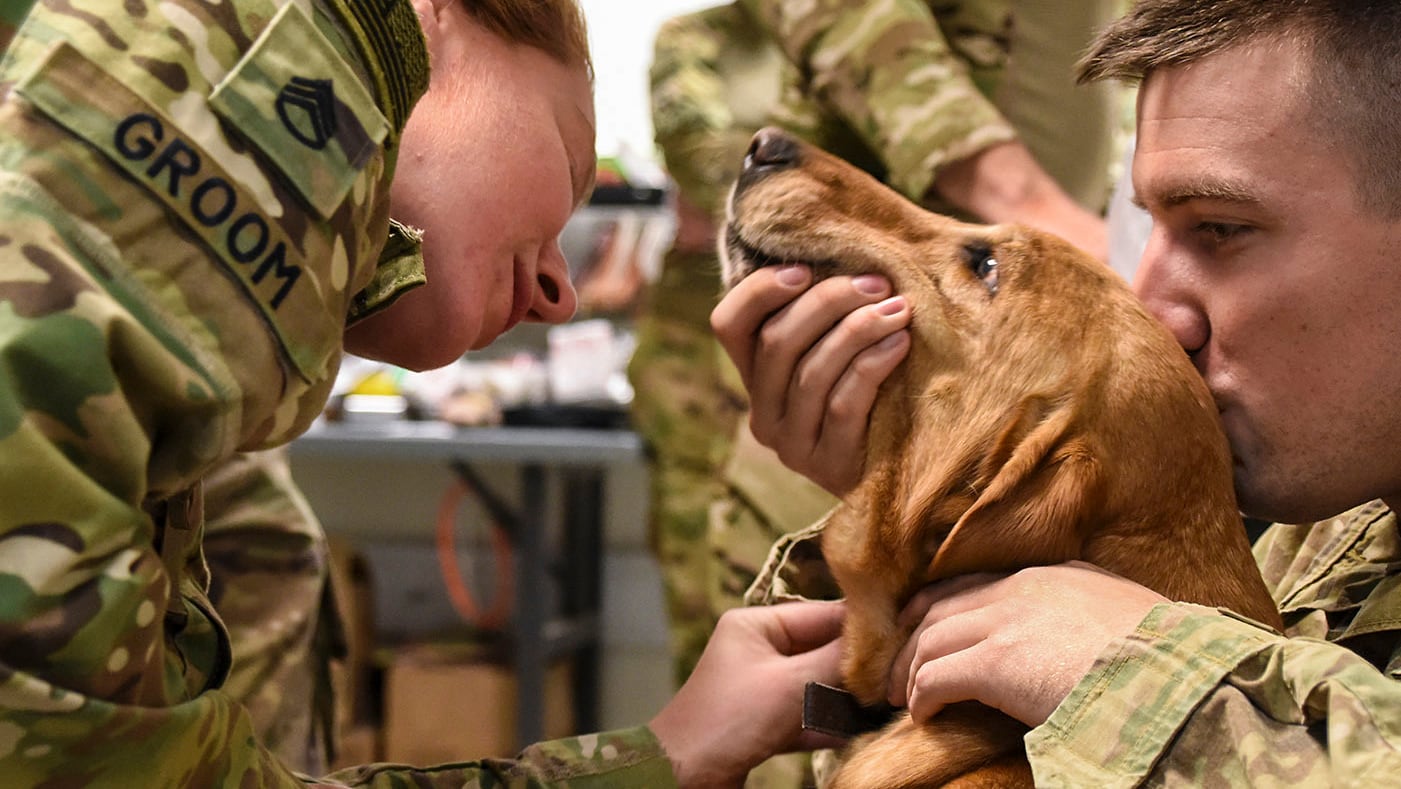Animal rights group PETA filed an appeal last month with the U.S. Army requesting the release of public information on weapons testing that harms dogs, cats, monkeys and marine mammals.
According to the organization, the Army is withholding 2,000 pages of records concerning such tests and has denied the group’s Freedom of Information Act request to access them.
The U.S. Army Medical Research and Development Command is disputing that claim.
“PETA filed a FOIA, and after a very thorough record search, one document was found in response to the FOIA and cannot be released because of the classification,” MRDC spokesperson Lori Salvatore told Army Times.
That supposed singular document is currently classified under Executive Order 13526 and is being withheld in accordance with Title 5 U.S.C. § 552(b)(1), Exemption 1.
Exemption 1, as Salvatore notes, “protects from disclosure information that has been deemed classified ‘under criteria established by an Executive order to be kept secret in the interest of national defense or foreign policy’ and is ‘in fact properly classified pursuant to such Executive order.’”
The animal rights group’s reasoning for filing the FOIA stems from a February 13, 2020, memo from MRDC that PETA officials called “a significant change from then-Defense Secretary Caspar Weinberger’s 1983 ban on using animals in DOD wound labs, and the 2005 Army Regulation 40-33 that prohibits the use of dogs, cats, marine animals, and nonhuman primates from ‘[r]esearch conducted for development of biological, chemical, or nuclear weapon,’” according to the organization’s press materials.
“The Army is being disingenuous when they claim that the 2020 USAMRDC Policy 84 is mainly just for clarifying the name of prior animal use regulations,” Shalin Gala, PETA vice president of International Laboratory Methods, told Army Times. “It’s much more than that.”
Army officials, however, claim the memo in question was issued to clarify parameters of terms related to animal testing, not to change policy.
“It is local procedures for the DOD Instruction 3216.01,” Salvatore added, which “details what is permitted and the MRDC policy adds additional requirements to the review process for all animals in research.”
Currently, DOD Instruction 3216.01 prohibits cats and dogs from being used in weapons wounding tests.
“The purchase or use of live dogs or cats for the purpose of training in surgical or other medical treatment of wounds produced by any type of weapon(s) is prohibited in accordance with Section 8019 of Public Law 101-511,” the document reads. “The purchase or use of nonhuman primates or marine mammals for the purpose of training in surgical or other medical treatment of wounds produced by any type of weapon(s) is also prohibited.”
The memo augments the document by asserting that while animals cannot be purchased for use in weapons wounding tests, those purchased and wounded under the terms of Research, Development, Test and Evaluation may be permissible, pending approval by the Animal Care and Use Review Office.
According to Salvatore, the Army has no ongoing animal wounding programs, despite claims by PETA.
“Bottom line is we do not have any studies related to wounding cats or dogs,” Salvatore said.
The U.S. military does still utilize animals in certain training environments, however. A Government Accountability Office report from May 2022 suggests that more oversight is needed for tracking the reduction of animal use for training purposes.
“DOD uses live animals to train military personnel to treat battlefield injuries,” the report notes. “DOD guidance states that alternatives will be considered and used whenever possible, if such methods produce scientifically or educationally valid or equivalent results. When animals are used, they are anesthetized to minimize pain or distress.”
Sarah Sicard is a Senior Editor with Military Times. She previously served as the Digitial Editor of Military Times and the Army Times Editor. Other work can be found at National Defense Magazine, Task & Purpose, and Defense News.





